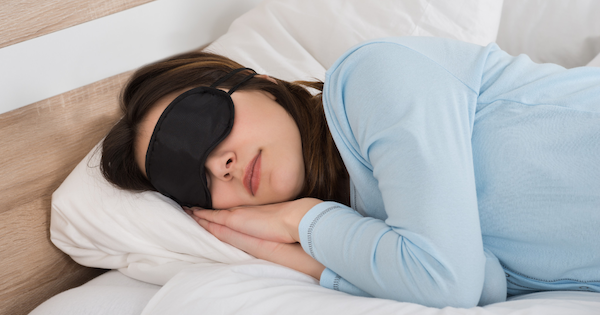Chronic insomnia is on the rise. Many of us are now getting artificial sleep and have become dependent on sleeping pills. While high energy is desirable during the day, body energy should decrease at night, but unfortunately, our energy remains much higher than desired during the night.
Getting enough and quality sleep is extremely important for our health. While adults need between 7 and 9 hours of sleep, growing children need longer hours of sleep.
During the night, our organs rest, our muscles develop, our tissues repair and protein synthesis takes place. Our hormones controlling hunger, satiety, stress and growth hormone are balanced. The brain filters and stores what it has learned during the day and makes room for new information the next day, strengthening our memory. Many other metabolic activities also take place during sleep. A good night’s sleep helps us to feel fresh the next day, boosts our immune system, increases our focus and prevents emotional ups and downs.
Dreaming is as important as good sleep. Not dreaming causes memory loss. Dreaming and sleep quality during the so-called REM period is governed by the hormone melatonin and body temperature. Just as in nature, the temperature of the human body drops as the evening air gets colder. In a dream, the brain works like an intestine, digesting the information received during the day and this is how learning takes place, deciding what to store and what not to store. Unfortunately, many anti-depressants and alcohol use interfere with the REM period of sleep. Research shows that people who do not dream have the same sleep patterns as people with emotional disorders. This suggests a link between sleep disorders and depression.

Inadequate and poor quality sleep negatively affects our body in many ways;
- Weight gain: A sleep-deprived brain confuses sleep deprivation and hunger signaling. In sleep-deprived individuals, leptin (hunger hormone) levels increase while ghrelin (satiety hormone) levels decrease. This is 2 times higher in women than in men. Therefore, people who don’t sleep well tend to consume more calories, especially sugary, high glycemic index foods, in order to be energized the next day. In addition, staying up late in the evening increases snacking.
- Chronic diseases and metabolic disorders: With a weakened immune system, the body becomes more susceptible to many diseases. Research shows that the risk of contracting viral infections is 50% higher in sleep-deprived individuals. The hormone insulin, which is under-secreted due to lack of sleep the night before, causes imbalances in blood sugar the next day, glucose tolerance decreases, leading to insulin resistance and thus diabetes and obesity. In addition, poor quality sleep increases the risk of hypertension, heart disease and cancer.
- Risk of injury
- Emotional ups and downs: Anxiety, tension, anger and restlessness increase, many emotional disorders occur. Research shows that there is a high correlation between depression and insomnia.
- Decreased melatonin levels: A decrease in the REM (dream) period leads to poor memory. Irregular and incomplete sleep makes it difficult for the memory to recover. The result is distraction, forgetfulness and impaired perception.
- Elevated cortisol levels: While cortisol levels should decrease during the night, nocturnal cortisol remains elevated in individuals who do not sleep well. High cortisol increases the hormone insulin and causes fat around the waist, leading to many conditions such as diabetes.

As you can see, sleep is critical for our health and quality of life. How can we improve the quality of this natural vigilance that is so important and yet has become so insignificant?
1. Eat properly: We should eat fresh fruits and vegetables and reduce sugar and caffeine. In addition, we should avoid alcohol, which interferes with dreaming.
2. Eat light in the evening: Digestion requires a lot of energy and when you eat heavy meals, the digestive system works for long hours and the body has less time to rest.
3.Reducing fluid consumption in the eveningDrinking liquids in the evening increases the number of bathroom breaks during the night and interrupts sleep.
4. Sleep in the dark: The hormone melatonin, which is activated in the dark, helps to keep our memory strong.
5. Remove electronic devices from the bedroom: Electronics emit artificial light, which we call blue light, which reduces melatonin secretion.
6.Reduce chronic inflammation: Inflammation, which is seen as the root cause of many diseases, also impairs sleep quality and causes snoring and sleep apnea. We can reduce inflammation by eating healthy, exercising regularly and avoiding stress.
7.Consume tryptophan-rich foods: Tryptophan amino acid, which is the precursor of melatonin secretion, is found in foods such as salmon, eggs, pineapple, soy, nuts, shrimp. Proper metabolism of tryptophan in the body is vital for REM and sleep quality.
8.Drinking milk does not bring sleep: The positive relationship between sleep and milk, which is a common misconception, actually has the opposite effect. The long-chain proteins in milk reduce the metabolism of tryptophan by competing with the protein called tryptophan to enter the bloodstream. Tryptophan that is not metabolized properly also reduces melatonin levels and disrupts the sleep cycle.
9.Cleanliness: A tidy bedroom calms the brain and makes it easier to fall asleep. Emptying our brains as well as tidying up helps us to have a good night’s sleep. Meditating before going to bed is a good way to clear the brain from the stress of the day.
10.Having a Healthy Gut Microbiota According to research, the structure of the gut microbiota determines the quality of our sleep by setting our circadian rhythm (our biological clock). Individuals with a healthy gut microbiota have better quality sleep.
In conclusion, sleeping well means a healthy body, a healthy mind and a good quality of life.
